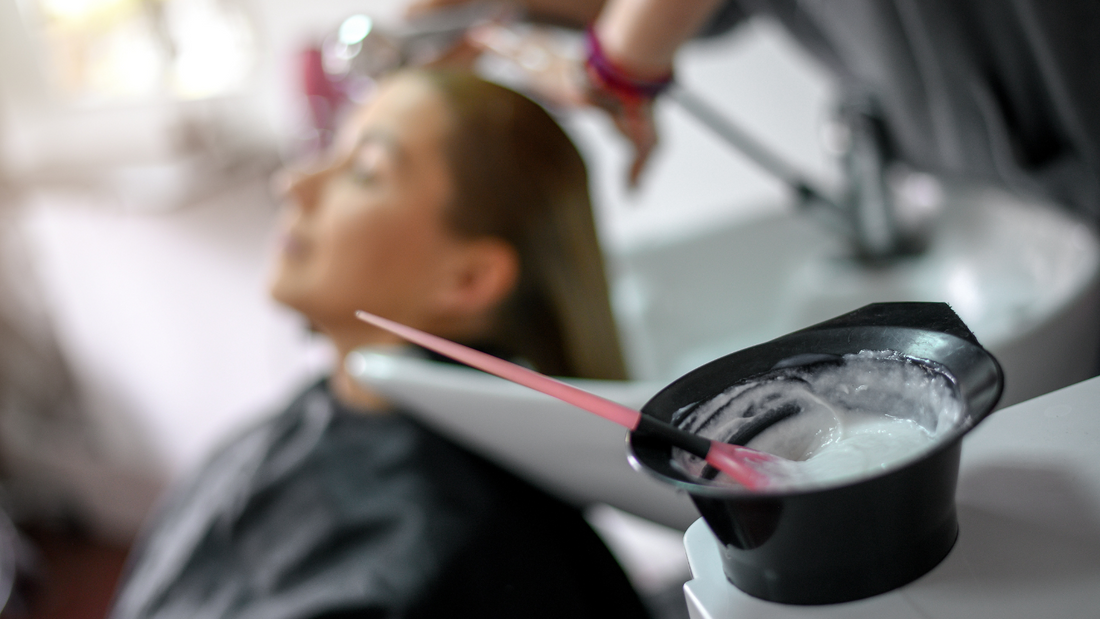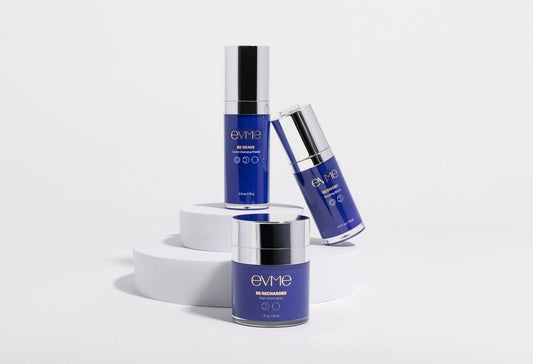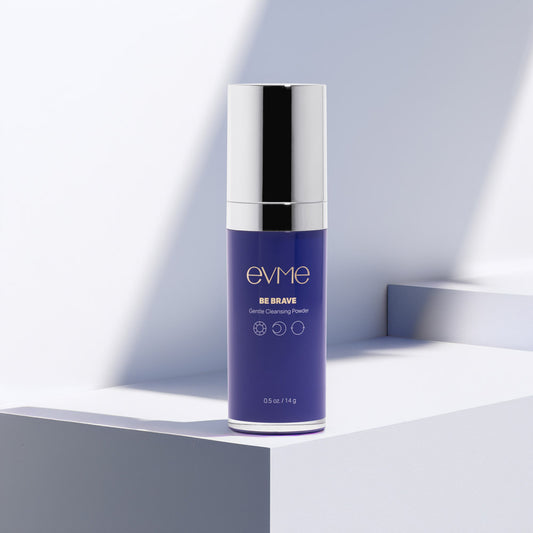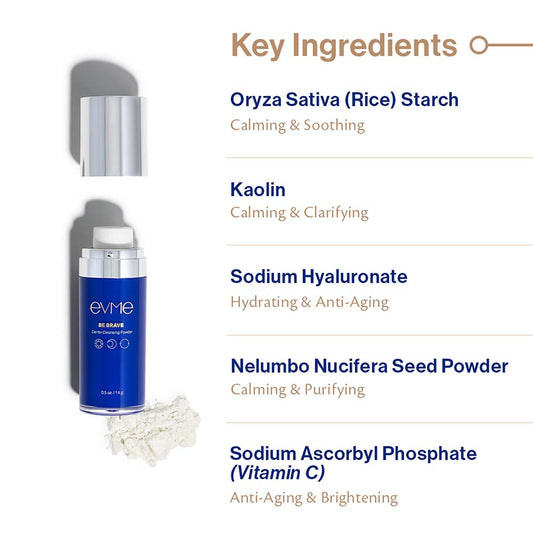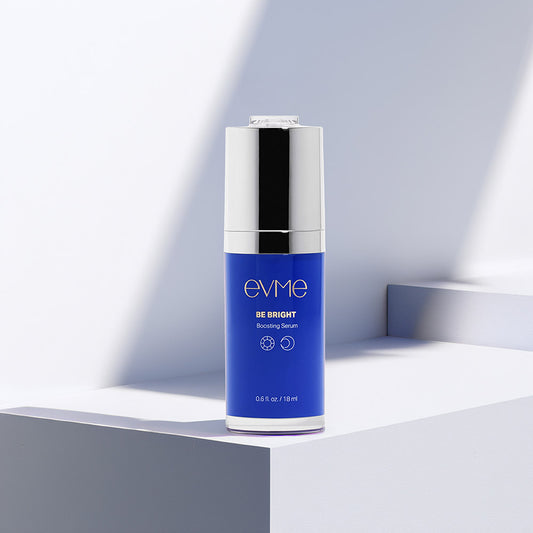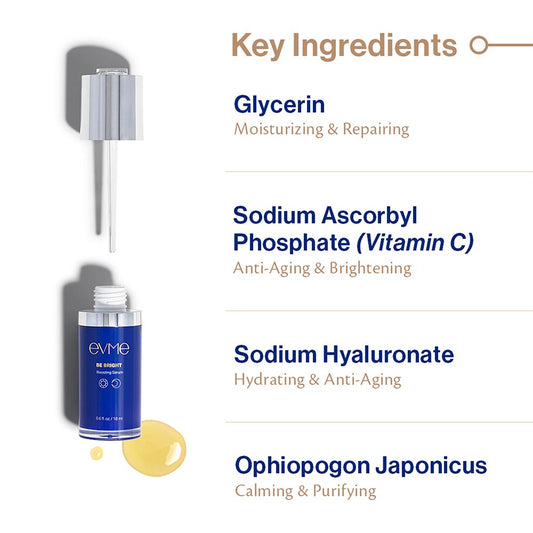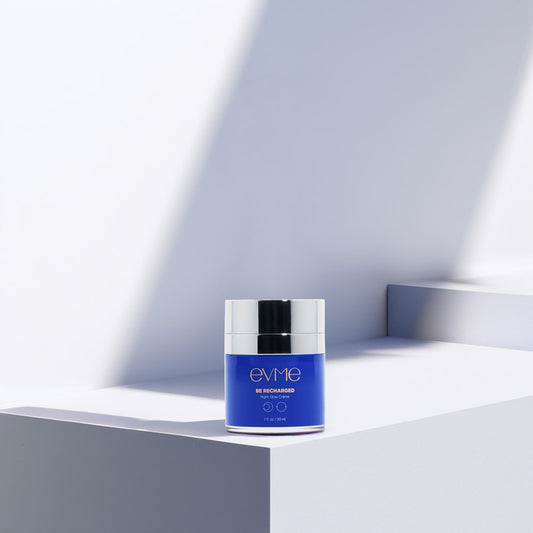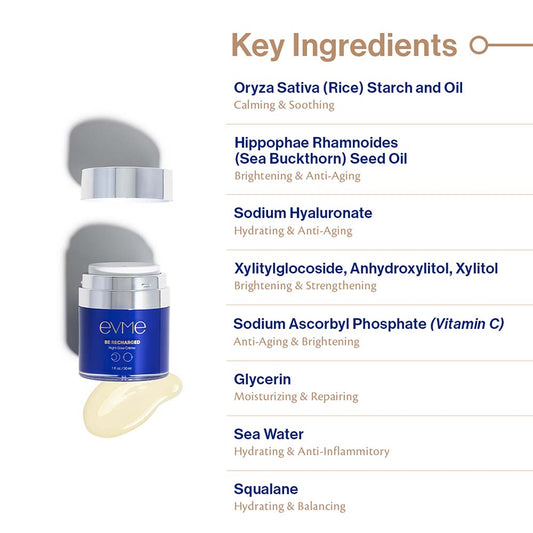Try Evme, allergist-created luxe skincare for sensitive and allergic skin.
Shop All ProductsAcne or Allergy: How can you tell the difference?
June 26, 2024
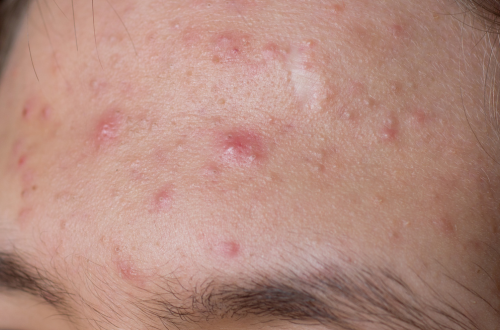
Back To Articles
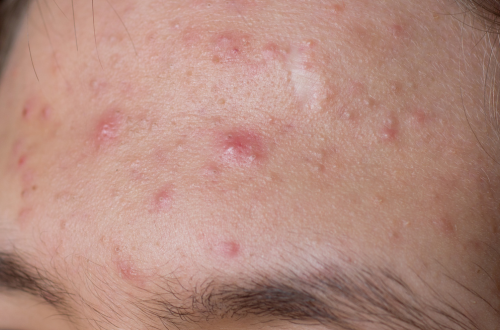
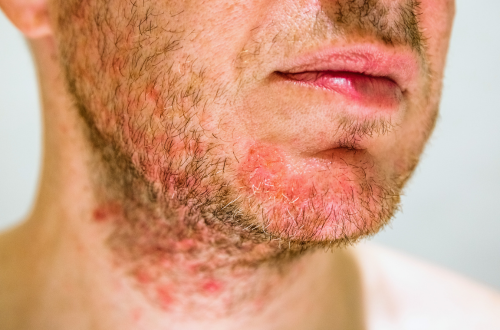
I can’t tell you how many times I’ve heard a patient tell me that they don’t think they get allergic reactions, instead they describe that they “break out”, presumably with acne, with certain products.
I hate to break it to you, but if this story resonates with you, you might have contact dermatitis!
In digging deeper with my patients, I was able to figure out that many of them were actually confusing contact dermatitis with acne breakouts. It can be a bit perplexing as sometimes allergic reactions can look very similar to acne flare-ups! It is crucial to determine if you are genuinely experiencing an allergic reaction as the treatment varies significantly and impacts how you should take care of your skin to prevent a reaction in the future.
Contact dermatitis affects about 20-40% of the population and most people don’t even know they have it! Contact dermatitis occurs when a topical agent (often a natural or chemical ingredient) touches the skin and causes a delayed allergic reaction, often with redness, bumps, and irritation. That sounds a lot like an acne flare-up, right?
The T-zone, which includes the forehead, nose, and chin, is a common area for acne to appear on the face. In contrast, contact dermatitis often affects the area around the eyes, around the mouth, and on the cheeks. It also can occur near the hairline and on the neck.
Acne is a disorder of the skin in which oil glands and hair glands become inflamed, causing redness, bumps, and irritation often in the form of pimples or cysts (Figure 1). Genetics, hormone changes, diet, and medications are just some of the known triggers for acne.
Figure 1: Patient with acne
Because acne is an inflammatory issue in the skin, it is really important to keep your skincare routine simple and gentle so that it does not inflame the skin more than it needs to. If you are using acne medication, it can often over-dry the skin and lead to a vicious cycle of dryness and inflammation. A skincare regimen with minimal, gentle ingredients that are hydrating (but not overly oily) and supportive to the skin (especially the skin barrier) is important for people with acne.
Contact dermatitis ultimately causes skin inflammation as well (Figure 2). This is why the resulting skin condition can sometimes look similar. Contact dermatitis, however, is caused by external agents that we are putting on our skin or exposing ourselves to that trigger a reaction. We can completely avoid contact dermatitis by choosing to use ingredients that are gentle, and historically/scientifically shown not to cause reactions. We also use anti-inflammatory agents like topical steroids for treatment of contact dermatitis that can actually sometimes make acne worse.
Figure 2: Patient with contact dermatitis, showing signs of reaction to shaving cream.
If you are having trouble figuring out if the “breakout” you are experiencing is contact dermatitis or acne, go visit your dermatologist or allergist who should be able to help you narrow down the cause.
For both conditions, keeping your routine simple and gentle without harsh ingredients that can further irritate the skin can be useful to maintain consistently healthy skin.
Recommended articles
close
Evme Sans-Allergenic Skincare Products
- Choosing a selection results in a full page refresh.


